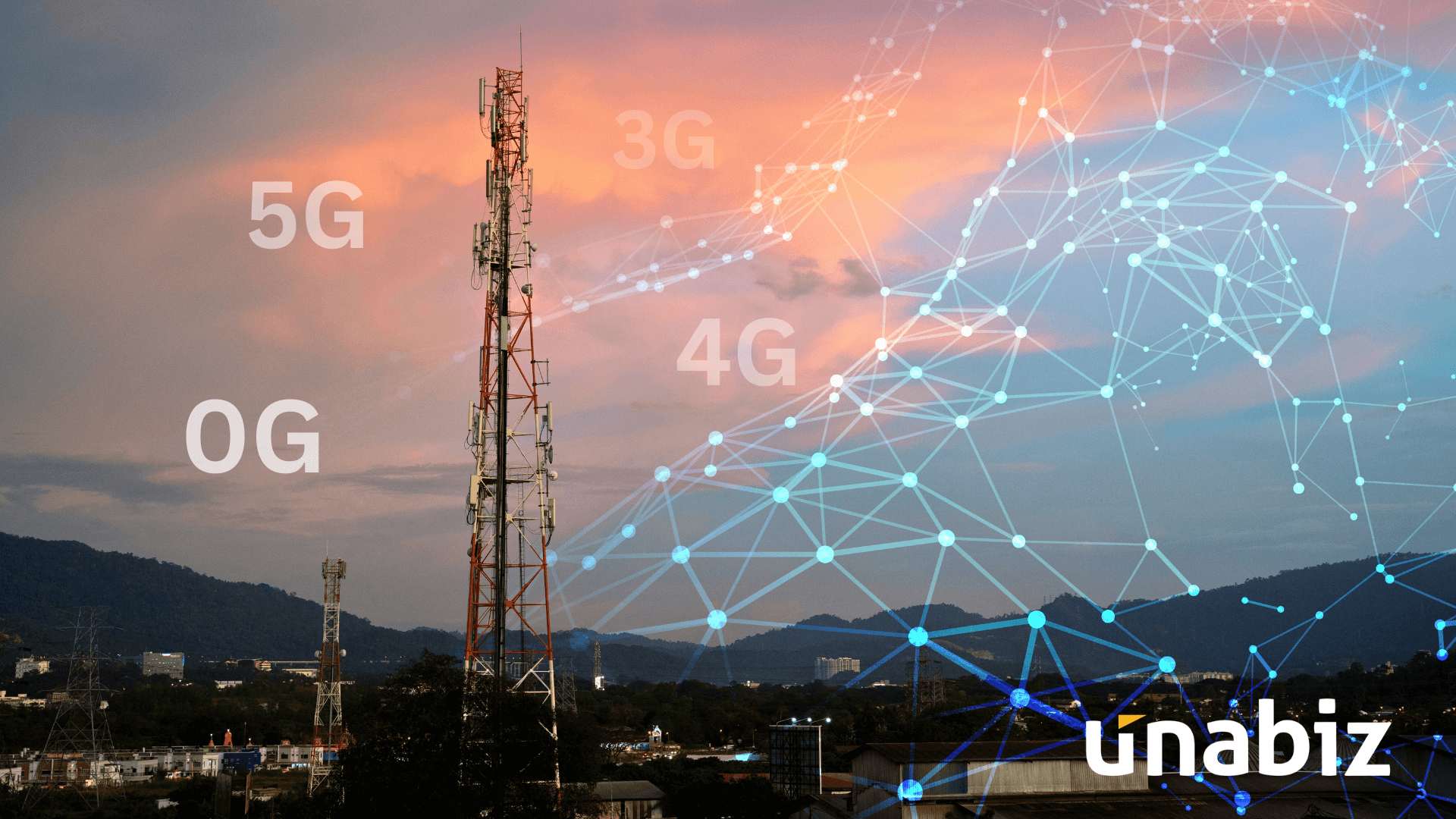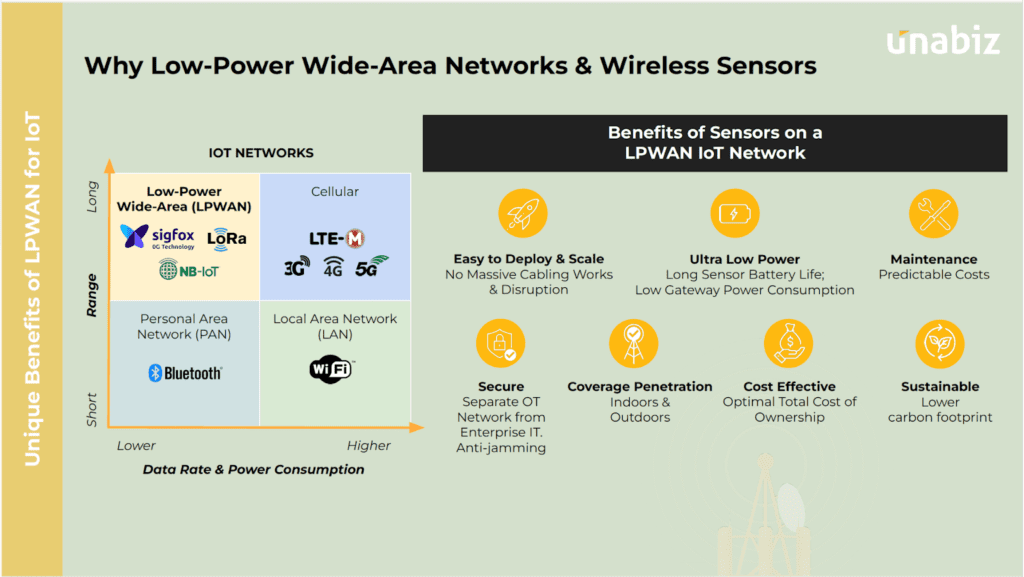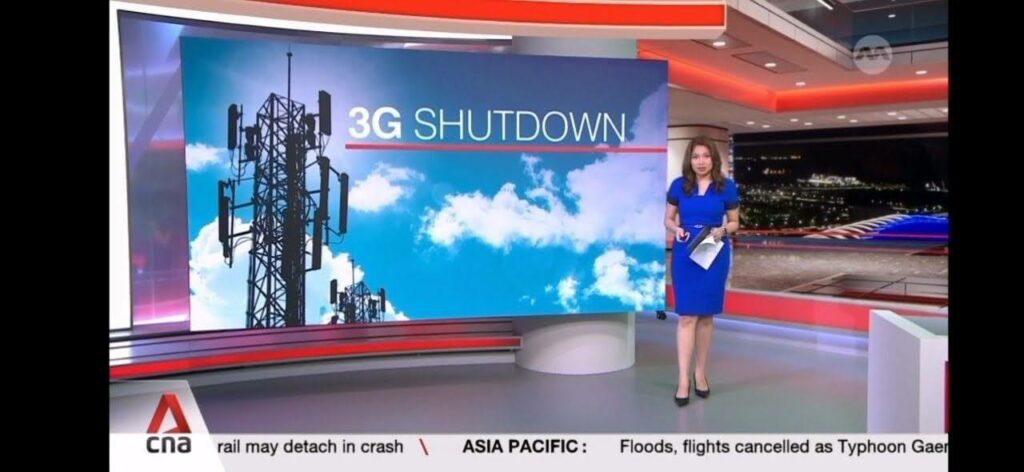
Tuesday, 6 August 2024, Singapore – From network disruptions to additional infrastructure costs to upgrade to 4G, the 3G sunset is a global transition that will impact any users of IoT devices that rely solely on 3G connectivity.
In a recent interview feature on CNA, Nicolas Ng spoke to Jonathan Tan, Managing Director for UnaBiz Southeast Asia and Taiwan, and Winston Baptista, CEO of Origin Exterminators about how the 3G network shutdown is affecting businesses and the IoT sector in Singapore.
What is UnaBiz and What Do We Do? Why Does Decommissioning of the 3G Network Matter to IoT?
UnaBiz owns the Sigfox 0G technology that connects more than 13 million IoT devices in over 70+ countries. This global 0G network owned and operated by 0G Solution Providers around the world is a complementary and alternative non-cellular network option for business who wish to deploy sustainable, energy-efficient, future-proof IoT solutions predominantly in the supply chain and logistics, facilities management, security, and utilities sectors.
The gradual phasing out of the 3G networks by telecoms providers are driven by the need to free up valuable radio frequencies to make way for the newer 4G and 5G networks, which boast enhanced data speeds and network connectivity.
On the other end of the spectrum is 0G, otherwise known as ‘zero generation’ which is essentially about using pre-cellular radio transmission. 0G represents an array of Low-Power Wide-Area Network (LPWAN) such as Sigfox 0G technology which have massive connection density and have been designed to cost-effectively connect simple, low-power IoT devices to the cloud.
Why Go for Low Bandwidth When There Are High Bandwidth 4G/ 5G Networks Available?
There are very different use cases for such low-bandwidth networks. Their main application lies in sensing modules that collect small amounts of analytics data that are measured in bytes – providing up to 90% cost savings in terms of total cost of ownership (TCO) compared to the more expensive cellular 3G/ 4G/ 5G networks which are designed to transmit a large amounts of data with low-latency.
In fact, Transforma Insights forecasts that LPWA connections will overtake regular cellular in 2025, with technologies including LoRaWAN and Sigfox growing from “698 million in 2022 to 5.2 billion in 2032. With that growth, these technologies will overtake traditional cellular technologies (comprising 2G, 3G, 4G, and 5G non-mMTC) in 2025.”
Why Does 0G Work for UnaBiz?
0G is often used as a complementary or alternative network to traditional cellular networks. Its wide-range, low-cost capabilities make it possible to wirelessly connect different devices, without high energy consumption and therefore make it more sustainable.
- The complementary nature of 0G and 5G – 0G offers a sustainable alternative to 5G and their coexistence can lead to significant savings in energy consumption and reliability.
- The adoption of 0G can accelerate our ecological transition – especially for corporations and institutions aiming for a neutral carbon footprint.
In an interview with D. Garcia from ECOticias -El Periódico Verde, Manuel Alvarez, Managing Director of UnaBiz Spain shares that 5G is equivalent to a “highway” and 0G is a “bike lane” – tailored & efficient!
Concluding Words
UnaBiz Singapore has fully transitioned our affected assets ahead of the shutdown.
Jonathan adds, “For most of us mobile phone users, the 3G to 4G to 5G transition has little impact on our experience. This is because we change our handphones regularly, and we get new SIM cards along the way. However, if you operate IoT devices on an industrial scale and with geographically varied deployments, these networked devices and systems are meant to operate seamlessly for 10 to 20 years or more. Thousands of these devices are deployed all over the country. With the 3G/ 4G/ 5G transition, network and solutions providers all have to switch out to new 4G and 5G-enabled devices, until the next shutdown.
At UnaBiz we bear the cost and responsibility of this transition and do not transfer this cost to our customers. However, the transition might still create some operational disruptions.
3G started in around 2005 and lasted about 20 years in Singapore. 4G was introduced in 2011. So we might see the sunset of 4G in around 2030+? Not too far away. We’ll have to transition devices again soon.”
Next Steps?
Speak to UnaBiz and 0G Solution Providers to find out how we can help you connect your assets on the 0G Network.
Watch the CNA News Segment here, from ▶︎ •၊၊||၊|။|||||||• 📍1:28










